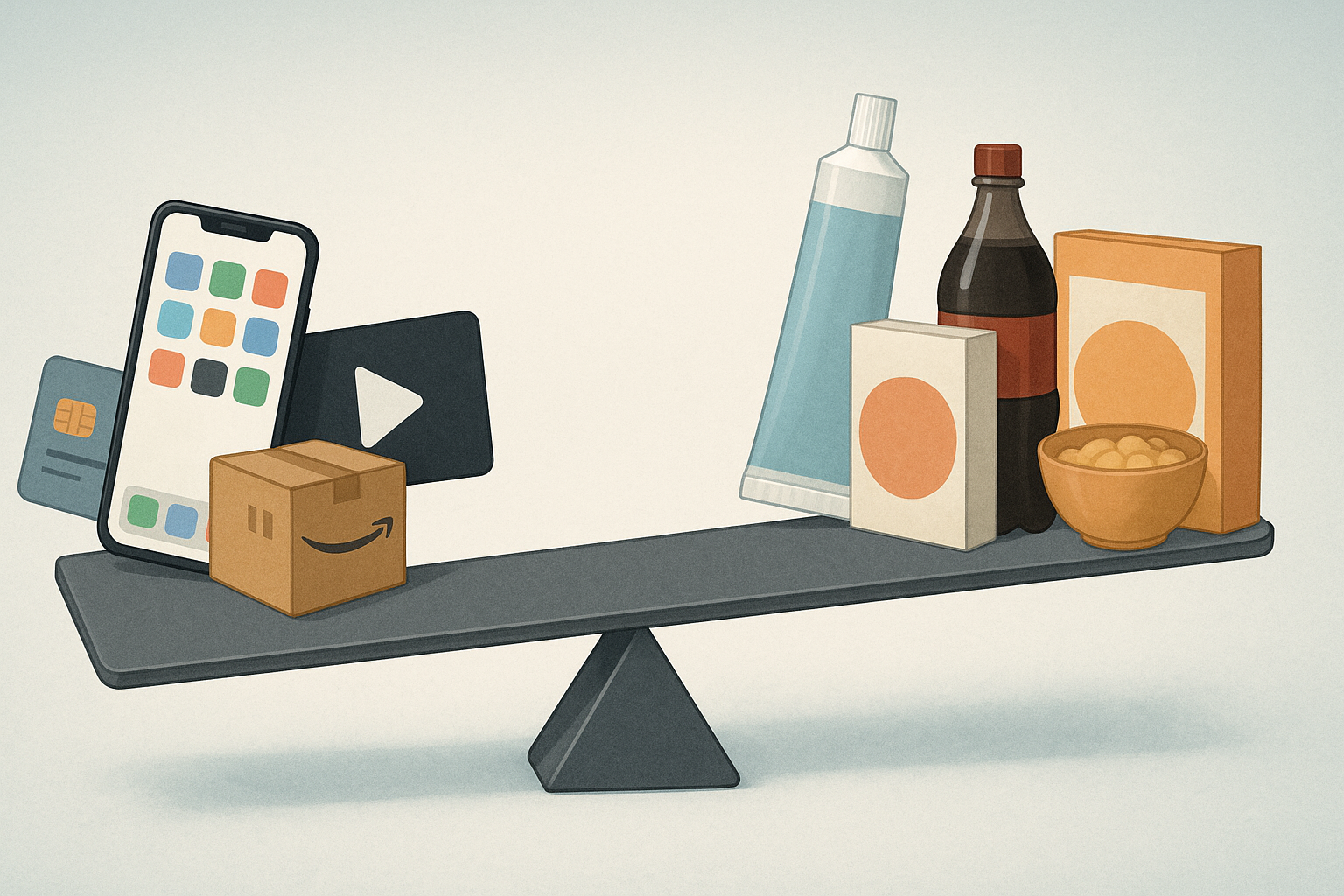Something weird is happening out there.
I've spent nearly two decades watching market patterns during downturns, and this recession is breaking all the rules I thought I understood. Tech stocks—those supposedly vulnerable growth darlings—aren't just weathering the storm. They're positively thriving.
Meanwhile, traditional safe havens? Walmart, P&G, Coca-Cola? They're getting left behind.
It's as if someone rewrote the investment playbook overnight and forgot to tell half the market. The conventional wisdom (you know the one) that says investors flee to boring consumer staples during tough times while dumping risky tech stocks? That old chestnut appears to be crumbling before our eyes.
Let me back up a second.
Throughout pretty much every economic downturn I can remember, the pattern was reliably predictable: when things got rough, people would cut back on luxuries but still buy the essentials—toothpaste, laundry soap, cheap food. Makes sense, right? You might postpone that new laptop purchase, but you're still gonna brush your teeth.
Not anymore, apparently.
Today's consumers are making different choices. They're skipping meals to keep Netflix. Choosing TikTok over Tide. Prioritizing Apple over Applebee's. (And yes, I've interviewed enough struggling families recently to confirm this isn't just anecdotal.)
The numbers tell the story better than I can. Just look at the performance spread between XLK (the Technology Select Sector SPDR Fund) and XLP (Consumer Staples Select Sector SPDR Fund) over the past year. Tech has absolutely crushed staples during what any reasonable economist would classify as economic contraction.
So what the hell is going on?
I think we're witnessing several forces converging at once. First—and this is crucial—many tech companies have achieved what I'll call "psychological utility status." They've embedded themselves so deeply in our daily routines that consumers now treat them as necessities rather than optional purchases.
Think about it. Amazon isn't just some fancy shopping site anymore; for millions, it's how they get their basic necessities. Netflix isn't mere entertainment; during lockdowns and beyond, it became psychological salvation.
Second, that subscription model? Pure genius from a recession-resistance standpoint. It's far easier psychologically to maintain a $15 monthly subscription than to make a new $600 purchase. The mental friction of cancellation ("Will I miss this? What if I want it back?") often exceeds the pain of continued payment.
But there's something bigger happening too.
Many of today's tech giants bear little resemblance to their cash-burning ancestors from recessions past. Apple, Microsoft, Alphabet, Amazon—these companies are sitting on cash reserves that would make traditional consumer staples companies weep with envy. They've transformed from speculative bets into legitimate cash-generating machines.
Having covered tech earnings calls for years, I've watched this transformation happen quarter by quarter. These aren't the fragile startups of the dot-com era; they're financial fortresses.
The comparison to utilities is particularly striking to me. Just as few voluntarily disconnect their electricity during hard times, fewer still seem willing to give up smartphones or internet connectivity. When was the last time you met someone proudly announcing they were "taking a break" from having running water? That's increasingly how people view their digital services.
Is this shift permanent? Or just investors fighting the last war?
My hunch—and after twenty years covering market cycles, I'll call it an educated one—is that this represents a structural rather than cyclical change. But with some important asterisks attached.
Not all tech is created equal. The companies that have truly achieved "consumer staple" status share specific traits: they provide services people use daily, enjoy powerful network effects, and maintain bulletproof balance sheets.
There's also the elephant in the room: regulatory risk. The more tech companies resemble essential utilities, the more likely they'll attract the loving attention of regulators. True utilities typically operate under price controls and other restrictions that tech has thus far dodged.
Look, categories evolve. Today's tech staples were yesterday's speculative moonshots. And somewhere out there, today's speculative bets might be tomorrow's essentials.
In the meantime... I'll keep watching as consumers line up at food banks, iPhones in hand, checking their streaming queues. Maslow's hierarchy of needs has gotten one hell of a rewrite—and the market is simply reflecting our new reality.
